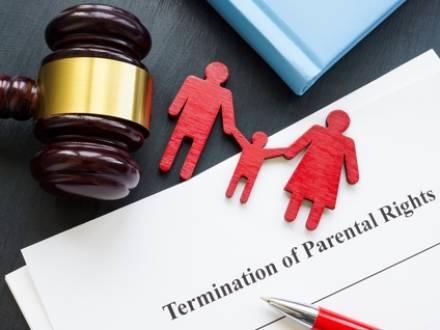Recent Blog Posts
What Is a Standby Special Needs Trust for Muslims?
 Parents of children who have disabilities may feel equally blessed and challenged. Of course, there is a wide spectrum regarding the term "disability." While some disabilities will bring challenges, the child will grow up to lead what is generally considered a "normal" life in that they can seek educational opportunities and work to make a living.
Parents of children who have disabilities may feel equally blessed and challenged. Of course, there is a wide spectrum regarding the term "disability." While some disabilities will bring challenges, the child will grow up to lead what is generally considered a "normal" life in that they can seek educational opportunities and work to make a living.
Other disabilities can hinder educational and employment opportunities. In some cases, it can be difficult to know for certain what the future of a child with disabilities looks like. Situations that seem extremely precarious can change over time. In other cases, disabilities can occur once a child is an adult, resulting in family conflict.
This can lead to dilemmas for Muslim parents who want to help their adult child through estate planning methods without violating Islamic inheritance rules. If you are struggling with a similar issue, it can be extremely beneficial to speak to an experienced Oakbrook Terrace, IL lawyer with significant experience in Islamic law.
What Is Involved in the Discovery Process During Divorce?
 There are many different aspects of a divorce, including the division of marital assets, the determination and award of spousal support, and issues regarding child custody, now known as the allocation of parental responsibilities and parenting time in Illinois. The purpose of divorce is to end the marriage while dividing marital assets and debts in a manner that is considered fair under the equitable distribution laws of Illinois.
There are many different aspects of a divorce, including the division of marital assets, the determination and award of spousal support, and issues regarding child custody, now known as the allocation of parental responsibilities and parenting time in Illinois. The purpose of divorce is to end the marriage while dividing marital assets and debts in a manner that is considered fair under the equitable distribution laws of Illinois.
To accomplish the division of marital debts and assets, there must be a discovery process. In a criminal trial, discovery means each side must reveal the information they have regarding the case. In a divorce, discovery is the process of disclosing financial information, business records, real estate documents, tax returns, and any other information that will be used to divide the marital assets.
Does Islamic Law Permit the Use of Living Wills?
 A living will may also be called an advance directive and is an important part of an estate plan. Your living will tells health care professionals whether you want heroic measures used to keep you alive when you have a terminal illness and cannot state your wishes. Unlike a healthcare power of attorney, an advance directive only applies if you have a terminal condition – any incurable or irreversible condition that means any death-delaying procedures will only prolong the dying process.
A living will may also be called an advance directive and is an important part of an estate plan. Your living will tells health care professionals whether you want heroic measures used to keep you alive when you have a terminal illness and cannot state your wishes. Unlike a healthcare power of attorney, an advance directive only applies if you have a terminal condition – any incurable or irreversible condition that means any death-delaying procedures will only prolong the dying process.
Even if you have a living will or advance directive, food and water cannot be withheld if that would be the only cause of death. If you are pregnant and the health care professional believes you could have a live birth, the living will may not go into effect. Islamic law permits the use of living wills as described more fully below. If you are considering an estate plan, including a living will, having an Oakbrook Terrace, IL estate planning attorney from Farooqi & Husain Law Office can make a difference.
Can I Empty Our Bank Account Before I File for Divorce?
 Although there can be valid reasons for emptying your bank account before you file for divorce – or even taking "your half" of the money in a joint marital bank account – it may not be a good look when you are standing before a judge defending the action. However, there may be exceptions.
Although there can be valid reasons for emptying your bank account before you file for divorce – or even taking "your half" of the money in a joint marital bank account – it may not be a good look when you are standing before a judge defending the action. However, there may be exceptions.
If you feel there is an immediate threat to your safety or that of your children, access to funds could be necessary. If you are worried that your spouse will deny you access to marital funds, then taking your half might be explainable. If you believe your spouse is hiding assets and you think it will take a forensic accountant to find those assets, taking bank funds could make sense.
Finally, if you believe your spouse will deprive you of all funds as a means of preventing you from paying a divorce attorney and filing for divorce, this could also be a valid reason to take your half before you file. A judge would not look kindly on a spouse who refused marital funds to pay attorney fees for a divorce.
What Is a 5 by 5 Power Clause in an Illinois Trust?
 While about 56 percent of Americans believe estate planning is important, only 33 percent of U.S. adults have documented their end-of-life plans in 2024 – a 6 percent decline from 2023. Most adults who do not have an estate plan cite "lack of assets" as the reason. In truth, virtually anyone from any walk of life can benefit from having an estate plan.
While about 56 percent of Americans believe estate planning is important, only 33 percent of U.S. adults have documented their end-of-life plans in 2024 – a 6 percent decline from 2023. Most adults who do not have an estate plan cite "lack of assets" as the reason. In truth, virtually anyone from any walk of life can benefit from having an estate plan.
A trust has many benefits over wills, including no need for probate, protections against lawsuits, bankruptcies, and creditors, more control over how assets are distributed, tax benefits, and taking care of yourself during your own lifetime in the event of incapacitation. There are many different types of trusts for a variety of situations. Your Oakbrook Terrace, IL estate planning attorney can help you determine what your estate plan should include.
What Options Do Muslim Women Have in a Religious Divorce?
 The Islamic tradition allows both Muslim men and women to divorce. However, men may divorce their wives unilaterally, while women must secure the consent of their husbands. Should a husband refuse to grant his wife access to a religious divorce, she could be divorced under civil laws but still considered to be religiously married by the community and her husband.
The Islamic tradition allows both Muslim men and women to divorce. However, men may divorce their wives unilaterally, while women must secure the consent of their husbands. Should a husband refuse to grant his wife access to a religious divorce, she could be divorced under civil laws but still considered to be religiously married by the community and her husband.
Civil and religious divorces must be done separately; a religious divorce through the community process and a civil divorce through the state family court system. This approach restricts the ways in which Muslim women can secure a religious divorce.
There are other options available under Islamic laws that can free a woman from a marriage she no longer wants. If you are seeking a civil and religious divorce, an experienced Oakbrook Terrace, IL attorney from Farooqi & Husain Law Office is ready to help you through the process. At Farooqi & Husain Law Office, we are committed to serving the Muslim community in DuPage County.
Is There a Time Limit to Settle an Illinois Estate?
 Settling an Illinois estate can be difficult, moving at a slow crawl, or it can be relatively straightforward and reasonably quick. The complexities of an estate will largely determine how the process will go, or if a will or trust is challenged or contested, the length of time will increase exponentially.
Settling an Illinois estate can be difficult, moving at a slow crawl, or it can be relatively straightforward and reasonably quick. The complexities of an estate will largely determine how the process will go, or if a will or trust is challenged or contested, the length of time will increase exponentially.
Of course, those who are waiting for the process to conclude, like beneficiaries or heirs, are naturally anxious to have the process over and done. There are a number of factors that will affect how long the probate process will take. If you have questions about settling the estate of a loved one, it can be helpful to speak to an experienced Oakbrook Terrace, IL estate planning attorney.
What is the Probate Process in Illinois?
The settlement of an estate in Illinois will typically involve probate, which is a procedure that includes will validation, appraisal of assets, debt settlement, and distribution of assets to designated heirs. There are many steps involved in the probate process, including:
The Islamic Perspective on Child Custody
 Divorce is virtually always a challenge in some way, whether for the spouses, their children, or everyone involved, even those on the fringe. "Custody" in Illinois is known as the allocation of parental responsibilities. Parenting time, designating one parent as the primary resident parent, and a comprehensive parenting plan are all part of the process.
Divorce is virtually always a challenge in some way, whether for the spouses, their children, or everyone involved, even those on the fringe. "Custody" in Illinois is known as the allocation of parental responsibilities. Parenting time, designating one parent as the primary resident parent, and a comprehensive parenting plan are all part of the process.
The Islamic perspective on these issues ensures the welfare of the children while preserving the rights and responsibilities of both parents in raising their shared children. Islamic couples who are considering divorce can consult with an Oakbrook Terrace, IL family law attorney from Farooqi & Husain Law Office who has significant knowledge and experience in Islamic family law.
General Custody Considerations Under Islamic Law
Under Islamic law, the parent who will have custody is considered the child's right rather than the right of either parent, which speaks to the child's best interests. An Islamic judge must hear both sides of the custody issue to make a determination, but the mother has priority right under Islamic law over the physical custody of a minor child, up to a certain age, after the divorce if she does not remarry. If the mother chooses to remarry, she forfeits her right to custody.
What Triggers the Termination of Parental Rights?
 Parents facing the termination of parental rights can be devastated and may need legal assistance to prevent the termination from occurring. Illinois courts generally do whatever they can to ensure that both parents remain in the child’s life—so long as it is in the child's best interests to do so. Many factors relate to the termination of parental rights.
Parents facing the termination of parental rights can be devastated and may need legal assistance to prevent the termination from occurring. Illinois courts generally do whatever they can to ensure that both parents remain in the child’s life—so long as it is in the child's best interests to do so. Many factors relate to the termination of parental rights.
Termination can be voluntary or involuntary, but one parent is not allowed to simply petition to terminate the other’s parental rights. Family law attorneys are experienced in the legalities associated with the termination of parental rights. If you are facing involuntary termination of parental rights, it is in your best interests to seek legal assistance from an Oakbrook Terrace, IL family law attorney from Farooqi & Husain Law Office.
What is Involved in the Termination of Parental Rights?
Parental rights can be terminated in the state in the following ways:
Estate Planning Mistakes That Can Result in Problems
 An estate plan that is well-thought-out and professionally prepared can be an exceptional gift to those you leave behind. Unfortunately, the complexity of estate planning laws, along with the emotional issues associated with estate planning, can lead to mistakes if you do not have professional legal guidance. While most adults believe they should have an estate plan, far fewer actually have one.
An estate plan that is well-thought-out and professionally prepared can be an exceptional gift to those you leave behind. Unfortunately, the complexity of estate planning laws, along with the emotional issues associated with estate planning, can lead to mistakes if you do not have professional legal guidance. While most adults believe they should have an estate plan, far fewer actually have one.
The typical reasons for not having an estate plan are a life that is too busy, not knowing exactly where to start, a belief that estate plans are only for the super-wealthy, and an unwillingness to consider one’s own mortality. Yet if you have no estate plan, you risk leaving your loved ones in chaos and having assets go to those you would not have chosen.
If you are considering an estate plan, it is important to have knowledgeable legal guidance throughout the process. An experienced Oakbrook Terrace, IL estate planning attorney from Farooqi & Husain Law Office is ready to help you ensure your loved ones are taken care of in the event of your incapacity or death. Some estate planning mistakes you can avoid include the following:


 630-909-9114
630-909-9114




